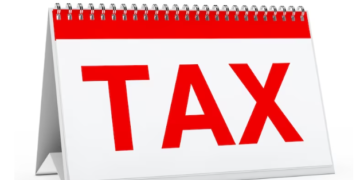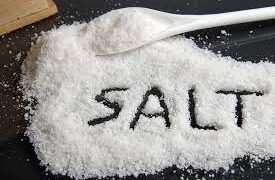If you own a credit card, you would understand the importance of having a good equifax credit score. There are total credit bureaus in India-TransUnion CIBIL, Equifax, Experian, and CRIF Highmark credit scores. Credit score has become one of the most popular financial terms in the last decade and for all the right reasons.
Credit scores vary from 300 to 900, with 750 being considered satisfactory. Keeping a high credit score ensures that you have access to emergency credit, if needed, at a reasonable interest. However, we all have been guilty of doing the below-mentioned habits that are affecting our experian credit score in some way or the other. Let’s understand those habits:
- Using up more than 30% of your credit card limit: Your credit utilization ratio (CUR) is a major component that influences your equifax credit score and is given significant weightage by credit bureaus. It is the percentage of your overall credit card limit that you have used. Those having a CUR of more than 30% are often seen as credit hungry, with a higher probability of defaulting on future credit repayments. As a result, credit bureaus reduce your credit score by a few points when you surpass this 30% mark, which can cause significant damage to your credit score if done regularly. As a result, to further avoid damaging your credit score, limit your credit card spending to 30% of your overall credit limit. If you find it difficult to do so with your current card limit, either request your lender to increase the limit or apply for a new credit card.
- Not looking at your credit report: This is yet another poor behaviour that has the potential to ruin your equifax credit score. A credit report is a summary of your current and previous loan and credit card accounts, your credit inquiries sent to financial institutions, and other credit and personal information. Your credit report is computed based on the information given to credit bureaus by financial institutions, and your credit score is produced accordingly. Considering this, it is important to keep a keen eye on your credit report So, isn’t it clear to maintain a monthly eye on your credit report? After all, if you ignore any errors or possible fraudulent behaviour noted in your credit report, they will continue to be overlooked, lowering your equifax credit score.
- Only taking unsecured debt such as credit cards and personal loans: Yes, you read that correctly. If your portfolio contains only unsecured debt, such as a personal loan or credit card, it might be detrimental to your credit score. This is due to the ‘credit mix’ factor in your credit score calculation. It refers to the proportion of your debt that is unsecured vs secured (for example, home loans and car loans). Credit bureaus tend to rank such consumers higher and look at them positively, which translates into a higher equifax credit score for such consumers because financial institutions typically prefer lending to people with a balanced credit mix of secured and unsecured loans in their portfolio. On the other hand, those with unsecured loans may be seen negatively by credit bureaus and financial institutions, thus harming their credit score.
- Submitting too many credit enquiries to lenders: Isn’t it usual that anytime we consider getting a loan or a credit card, we immediately send and submit an application to financial institutions? We may send such an enquiry/application to not just one, but numerous lenders, especially if we are in desperate need of finances. That’s where we usually go wrong. When you apply for a loan or make an inquiry about a credit card, the lender obtains your credit report from the credit bureaus to assess your creditworthiness and repayment history. Such lender-initiated credit report queries are now reported in your credit report as credit enquiries, each of which might lower your equifax credit score by a few points. If you end up submitting many credit applications to lenders, particularly in a short period of time, your credit score may suffer.
So, it’s a good idea to not only spread out your applications and enquiries over different time periods but also to conduct research on credit card and loan eligibility and offers from various lenders by visiting their websites or even online financial portals that offer such a service.
- Failure to make timely payments on credit card bills and loan EMIs: Another aspect that contributes significantly to your experian credit score calculation is your repayment history for credit card bills and loan EMIs.
As a result, failing to pay your credit card bills in full on or before the due date can show inconsistencies in your credit repayment history, which will be reflected in your credit report. As a result of such a financial habit, credit bureaus and financial institutions perceive you as a financially undisciplined borrower, raising the ‘credit risk’ associated with lending to you.
- Closing down old credit cards: If you make a habit of closing down cards you no longer use, you will reduce your credit utilization ratio by eliminating some available credit. You’ll also hurt the average age of your account history and lose the positive payment record cards you once had. The good news is that all of these habits are simple to avoid if you are aware of the harm they will cause. Simply be cautious about when and how you use your cards, and you can protect your experian credit score so that a poor rating does not complicate your life.
- Maintaining the bare minimum on your credit card bill: Most credit cards demand you to pay only 1% to 3% of your monthly debt. Paying the bare minimum may seem like a good idea, especially if money is tight, but it will cost you a fortune in the long run. Make it a practice to pay your bills in full by setting up a monthly transfer of the whole amount you owe. All of this might have a negative impact not only on your experian credit score, but also on your loan and credit card approval chances.
At last,
Many of us fail to understand that establishing and experian credit score is not a one-day task or an overnight task. Take into account the aforementioned tasks and work accordingly.







































































